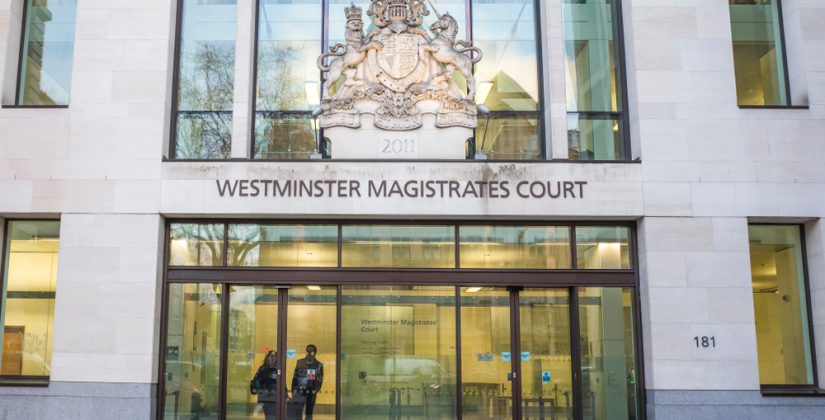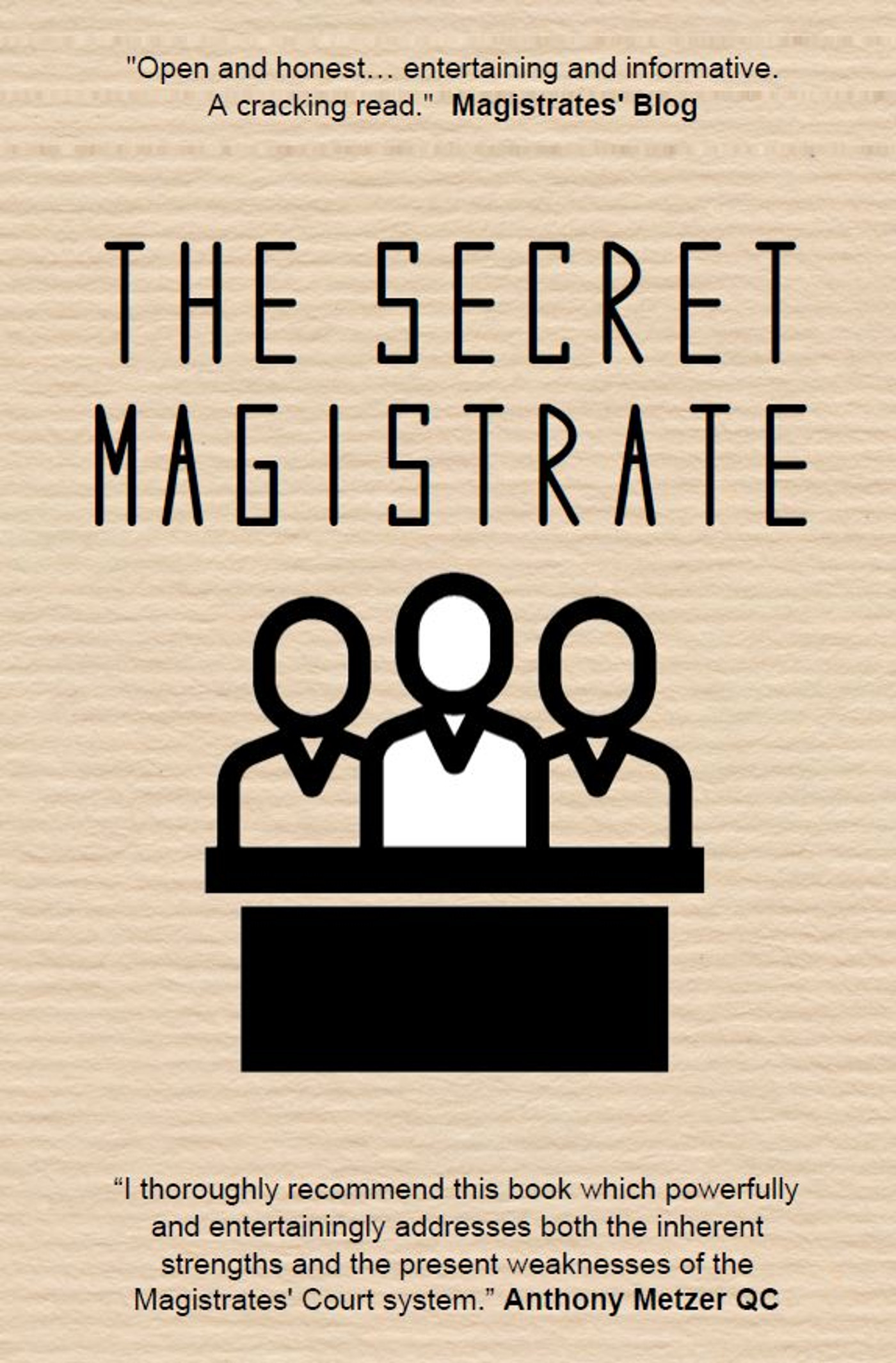The Secret Magistrate on how recent developments are affecting the recruitment of magistrates
In this guest post The Secret Magistrate author discusses questions of recruitment and training in the context of budget cuts and mounting pressure on the magistracy… Continue reading

The overwhelming majority of magistrates that I have either met or worked alongside are entirely fair, pragmatic, and open-minded, with a thirst for knowledge and improvement. Typically, magistrates have a well-developed sense of teamwork, broad life experiences, and – despite being under a great deal of time pressure – they make sensible and accurate decisions having firstly carefully assimilated and considered all the information thrown at them.
What makes these achievements even more praiseworthy is that they have been accomplished whilst working, at times, with one hand seemingly tied behind our backs. We have had to come to terms with playing our part in a judicial system that is suffering death by a thousand cuts after an estimated overall 25% HMCTS budget decrease over the last decade. Cutting costs does not necessarily result in greater efficiency, which is a subject that I have commented on in an earlier article on this blog (see The Secret Magistrate on how budget cuts and court closures are affecting the morale of the magistracy).
No expenses s pared
As a quick digression, magistrates are unpaid volunteers, many of whom do not even claim expenses. Mileage has up to now been paid at a rate of up to 58 pence per mile, depending upon the engine size of the motor vehicle, and there is also a daily subsistence allowance of £10.38 towards food if the magistrate is away from home for between eight and twelve hours. Magistrates who suffer a loss of earnings as a result of their duties can also claim a loss allowance. We are certainly not doing this for the money!
We received another untimely setback when the Ministry of Justice recently announced its revised expense policy which will take effect from 1st April 2021. There have been welcome increases to Financial Loss Allowance however the maximum mileage allowance has been reduced to 45 pence per mile in order to “bring magistrates in line with the wider judiciary and the majority of the public sector.” This totally ignores that unlike those just mentioned we do not receive any remuneration for our services and is perceived as yet another in a series of measures which have damaged our morale.
Beverley Higgs, the National Chair of the Magistrates’ Association, last week wrote a robust letter in response to this announcement to Robert Buckland, The Lord Chancellor highlighting many of the blows that the magistracy has suffered in recent years and the fact that so many of our members have defied the ravages of COVID to help keep the courts open throughout the pandemic. This cut in mileage rates which has obviously been poorly received by many of the MA’s membership is seen as a further kick in the teeth aimed at what is perhaps felt to be a soft target and a further blow to our morale at a time when we are particularly needed in order to help reduce the court backlog.
It will be fascinating to say what response, if any, is received to this well thought through, comprehensive and heartfelt letter which has already been welcomed by many magistrates.
Most of us magistrates also enjoy what we do despite the problems we face. According to a survey carried out in December 2017, 80% of respondents said they had a strong feeling of satisfaction with their role, 89% said they had a strong personal attachment to the role, and 91% said they would recommend the role to friends or colleagues. I am not so sure that an identical study conducted now would come up with similar answers and I would suggest that the high levels of satisfaction expressed by magistrates about their job are perhaps referring far more to their actual core task of ‘sitting on the bench’ which – if not always fulfilling – is invariably stimulating and empowering, rather than making reference to all the other pinpricks and constant delays (and lack of support both in and out of court) that have both affected and afflicted us behind the scenes and get in the way of our enjoyment of the role and our ability to do the best possible job.
Falling numbers
Where have all the magistrates gone? Our numbers continue to fall, from 25,170 in April 2012 to 14,348 seven years later. If that wasn’t bad enough, we learned in September that owing to a human resources error the real number of magistrates currently sitting in England and Wales was only 13,177.
Why have our numbers declined? Mainly because of decreasing workloads in magistrates’ courts plus natural depletion caused by consistent annual levels of retirement. Resignations – sometimes caused by concerns about our working conditions and the impact of court closures – have reduced numbers further and the system has not been able to replace departees quickly or adequately enough.
This makes the recruitment of new magistrates an absolute priority, and it is very encouraging that £1.3million has been set aside to help fund activity aimed at recruiting a younger and more diverse magistracy.
Positive news
There was also further good news last month with the announcement that the retirement age for magistrates (and other members of the judiciary) will be raised from 70 to 75 years once the law is changed.
Up until now, magistrates, like judges, have had a statutory retiring age of 70. It is crucial to keep replenishing and refreshing the crop of magistrates, hopefully ensuring that they are not hidebound, remain contemporary in their outlook, and are able to keep abreast of what is happening in the world around them. Older magistrates also run the risk of being perceived as out of touch by younger defendants. From my experience, we have had to lose some of the sharpest magistrates we possess because of statutory retirement, even though they are still in total control of their faculties, have moved with the times, and possess a wealth of experience to pass onto newcomers to the magistracy. They are generally also available to fill the gaps in the rota by sitting regularly.
That being said, I am sure we all know people aged 50 years or less who are ‘old’ well before their time. I am very conscious of the on-going shortage of magistrates, particularly younger ones, and the need to tailor our recruitment strategy in such a way as to attract them. However, like the overwhelming majority of my colleagues, I welcome this announcement which will help address this massive drain of talent and experience. I understand that retired magistrates will also be able to apply to return to the bench if there is a need in their particular region.
I would suggest that all magistrates are appraised by the Justices’ Training, Approvals, Authorisations and Appraisals Committee (JTAAAC), if they wish to continue. If found still to be competent, they should be allowed to sit for another year with their progress carefully monitored annually, and with the potential to sit until they reach the age of 75.
At last, some positive news for magistrates who continue to act competently and selflessly despite the obstacles put before them.

The Secret Magistrate’s book can be bought from Amazon.
Featured image: Westminster Magistrates’ court, London (via Shutterstock)